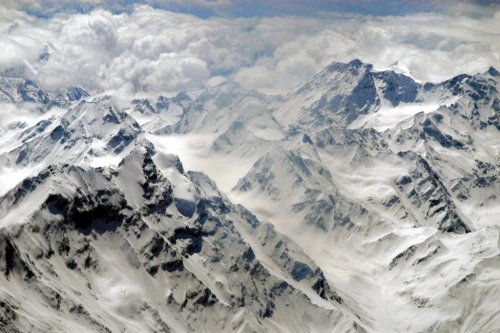 At least 14 people were killed in an avalanche that buried several houses in the village of Sher Shall, part of the town of Chintral, located in the Hindu Kush mountains in northwestern Pakistan.
At least 14 people were killed in an avalanche that buried several houses in the village of Sher Shall, part of the town of Chintral, located in the Hindu Kush mountains in northwestern Pakistan.
According to CNN, six women, six children and two men were among the dead. Officials fear more people are trapped beneath the thick wall of snow.
The Pakistani state media said rescue personnel are doing their best to search for bodies and deliver recovery supplies, like blankets, stoves and food. Inclement winter weather has made search and rescue efforts difficult. Many of the local roads are blocked by snow and ice.
At least 14 killed by avalanche in Pakistan
7.7-magnitude earthquake in Chile, tsunami warning lifted
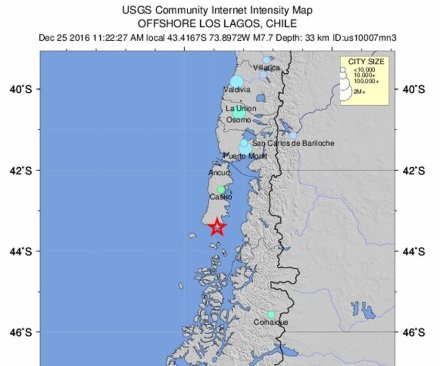 A 7.7-magnitude earthquake hit Chile Sunday. There were tsunami warnings, but they have been lifted.
A 7.7-magnitude earthquake hit Chile Sunday. There were tsunami warnings, but they have been lifted.
The quake hit 150 miles southwest of Puerto Montt, at a depth of 9 miles, the U.S. Geological Survey reported.
Chile's national emergency office issued an alert and ordered an evacuation.
More...
A 148-year-old temperature record broken in Australia
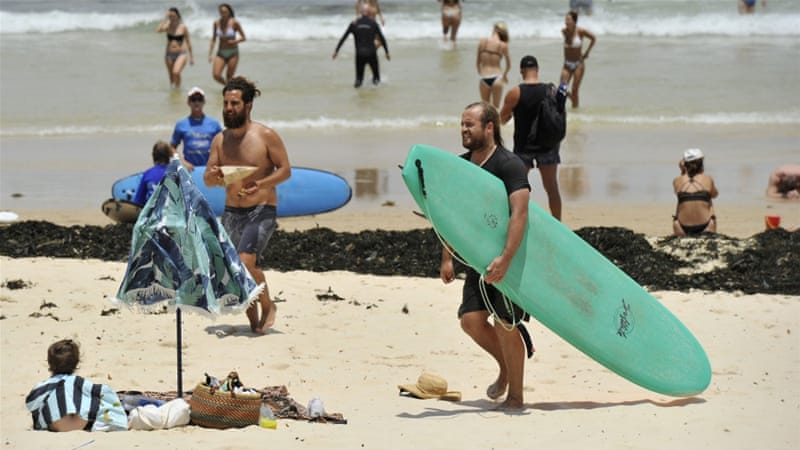 Sydney has just broken a record that has stood since 1868 - the overnight temperature stayed above 27C.
Sydney has just broken a record that has stood since 1868 - the overnight temperature stayed above 27C.
In December 1868, Sydney registered a minimum temperature of 26.3C, a record that had stood ever since. On Tuesday night, the minimum was 27.1C. It also makes it the second hottest night on record for any month of the year, a Bureau Of Meteorology spokesperson said.
Sydney is experiencing high temperatures, at day and night, and in December, that is surprisingly uncommon.
Tuesday saw a maximum temperature of 39C and on Wednesday, it was 37.5.
After 5-year study, scientists say unchecked Arctic melting may bring irreversible change
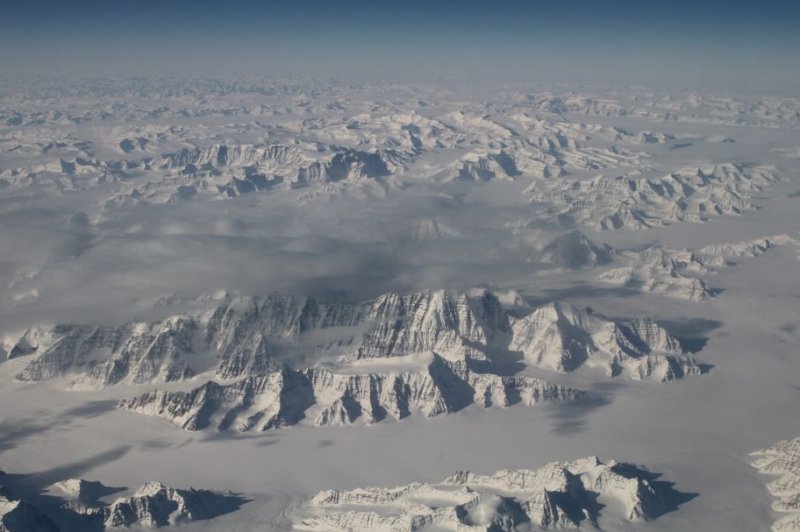 Quickly melting ice in the Arctic with no effort to stop it may someday bring a stage where critical ecological change is uncontrollable, a team of international scientists said in a "groundbreaking" new report Friday.
Quickly melting ice in the Arctic with no effort to stop it may someday bring a stage where critical ecological change is uncontrollable, a team of international scientists said in a "groundbreaking" new report Friday.
In the Arctic Resilience Report, released Friday, the team of scientists said Arctic ice is melting faster than ever before and it will probably only get worse. In fact, the ecological change currently happening in the Arctic region is unprecedented, they say, and could one day become irreversible.
World on track to lose two-thirds of wild animals by 2020, major report warns
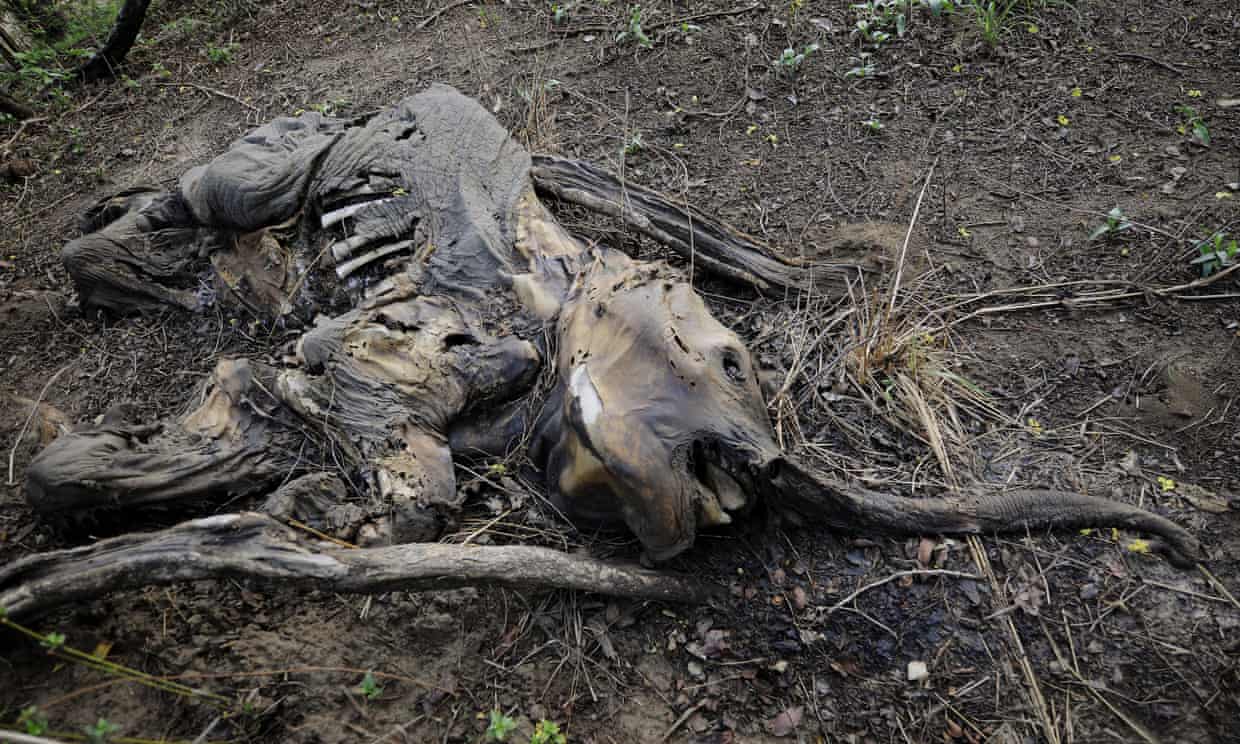 The number of wild animals living on Earth is set to fall by two-thirds by 2020, according to a new report, part of a mass extinction that is destroying the natural world upon which humanity depends.
The number of wild animals living on Earth is set to fall by two-thirds by 2020, according to a new report, part of a mass extinction that is destroying the natural world upon which humanity depends.
The analysis, the most comprehensive to date, indicates that animal populations plummeted by 58% between 1970 and 2012, with losses on track to reach 67% by 2020. Researchers from WWF and the Zoological Society of London compiled the report from scientific data and found that the destruction of wild habitats, hunting and pollution were to blame.
Fracking Linked to Cancer-Causing Chemicals, Yale Study Finds
 Yet another study has determined that hydraulic fracturing, or fracking, might be a major public health threat. In one of the most exhaustive reviews to date, researchers from the Yale School of Public Health have confirmed that many of the chemicals involved and released by the controversial drilling process can be linked to cancer.
Yet another study has determined that hydraulic fracturing, or fracking, might be a major public health threat. In one of the most exhaustive reviews to date, researchers from the Yale School of Public Health have confirmed that many of the chemicals involved and released by the controversial drilling process can be linked to cancer.
"Previous studies have examined the carcinogenicity of more selective lists of chemicals," lead author Nicole Deziel, Ph.D., assistant professor explained to the school. "To our knowledge, our analysis represents the most expansive review of carcinogenicity of hydraulic fracturing-related chemicals in the published literature."
DiCaprio's Climate Doc Exposes Destruction of Rainforest for Palm Oil as Huge Driver of Global Carbon Emissions
A new documentary produced and starring actor and activist Leonardo DiCaprio premieres in Los Angeles today and will be broadcast globally in 45 languages in 171 countries on the National Geographic Channel starting Oct. 30, timed to air in advance of the November elections.
The film highlights the critical role forest destruction plays in driving carbon pollution into Earth's atmosphere and focuses specifically on how the rapid spread of industrial palm oil plantations in Southeast Asia are at the heart of this crisis. The film It is directed by Fisher Stevens who, like DiCaprio, is an Academy Award winner.
More Articles...
Page 17 of 201

 Environmental Glance
Environmental Glance






























